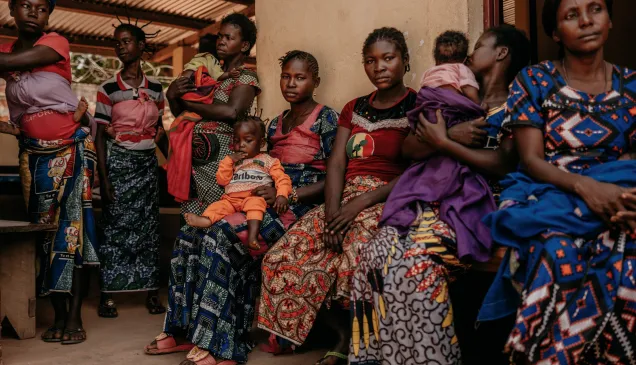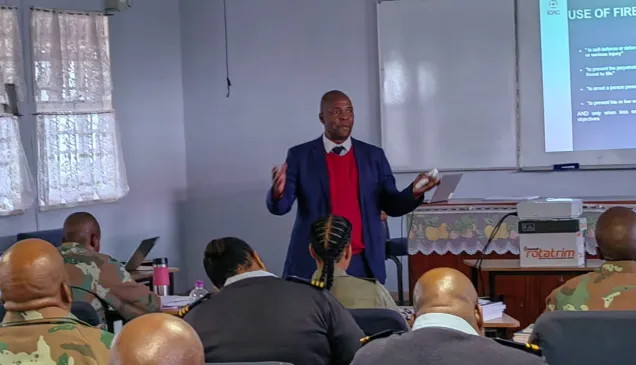Central African Republic: All the wounded must be spared and given medical treatment
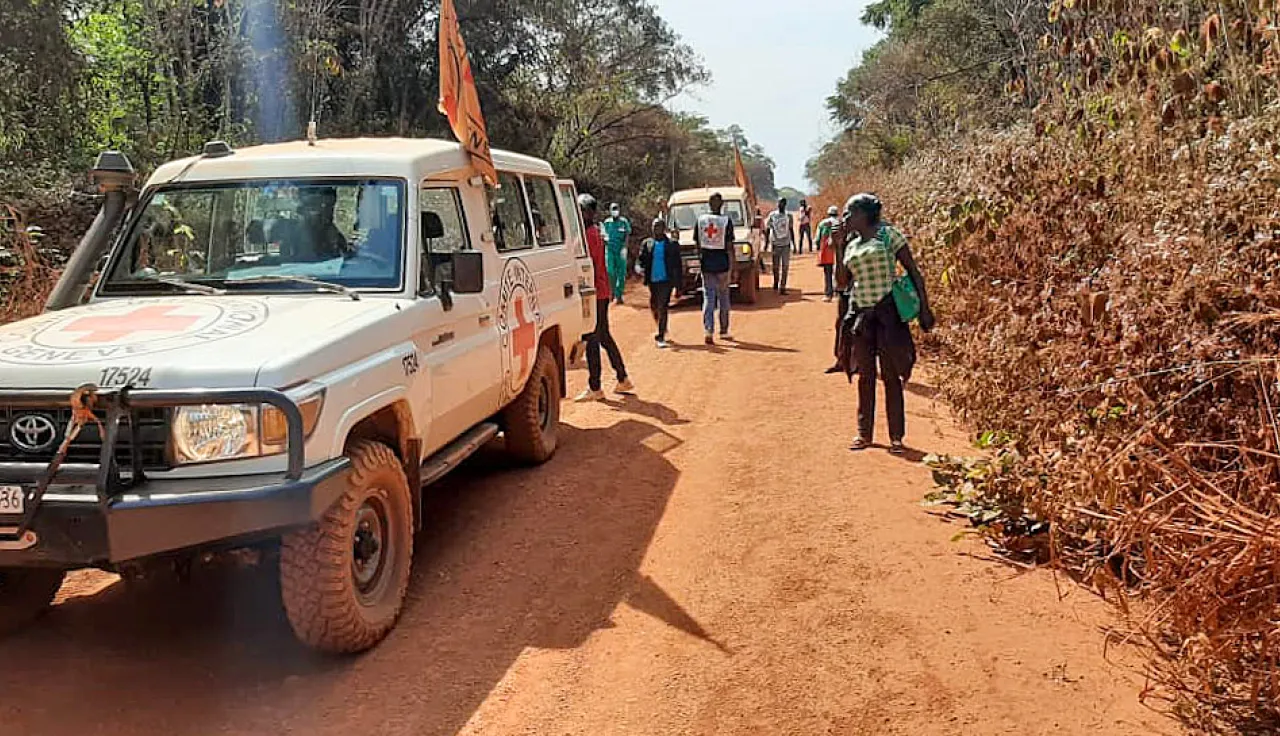
The principle of ensuring safe access to medical treatment must be upheld by all – in particular by sparing the lives and allowing the treatment of wounded individuals from the opposing camp. All actors must respect and ensure respect for the right of the sick and wounded to receive medical treatment and ensure that medical facilities, vehicles and personnel are protected.
"There are worrying signs that this principle is not being respected. We need to see action being taken now to stop more violations from happening," said Bruce Biber, the ICRC's head of delegation in the Central African Republic.
Nearly 100,000 people fled the fighting that broke out between government forces and armed groups as people took to the polls in mid-December 2020. Despite the instability, violence and murky political situation, the International Committee of the Red Cross (ICRC) is continuing to negotiate with all weapon bearers to access all areas of the country affected by the fighting in order to evacuate the wounded and bring assistance to thousands of families whose lives have once again been turned upside down by violence.
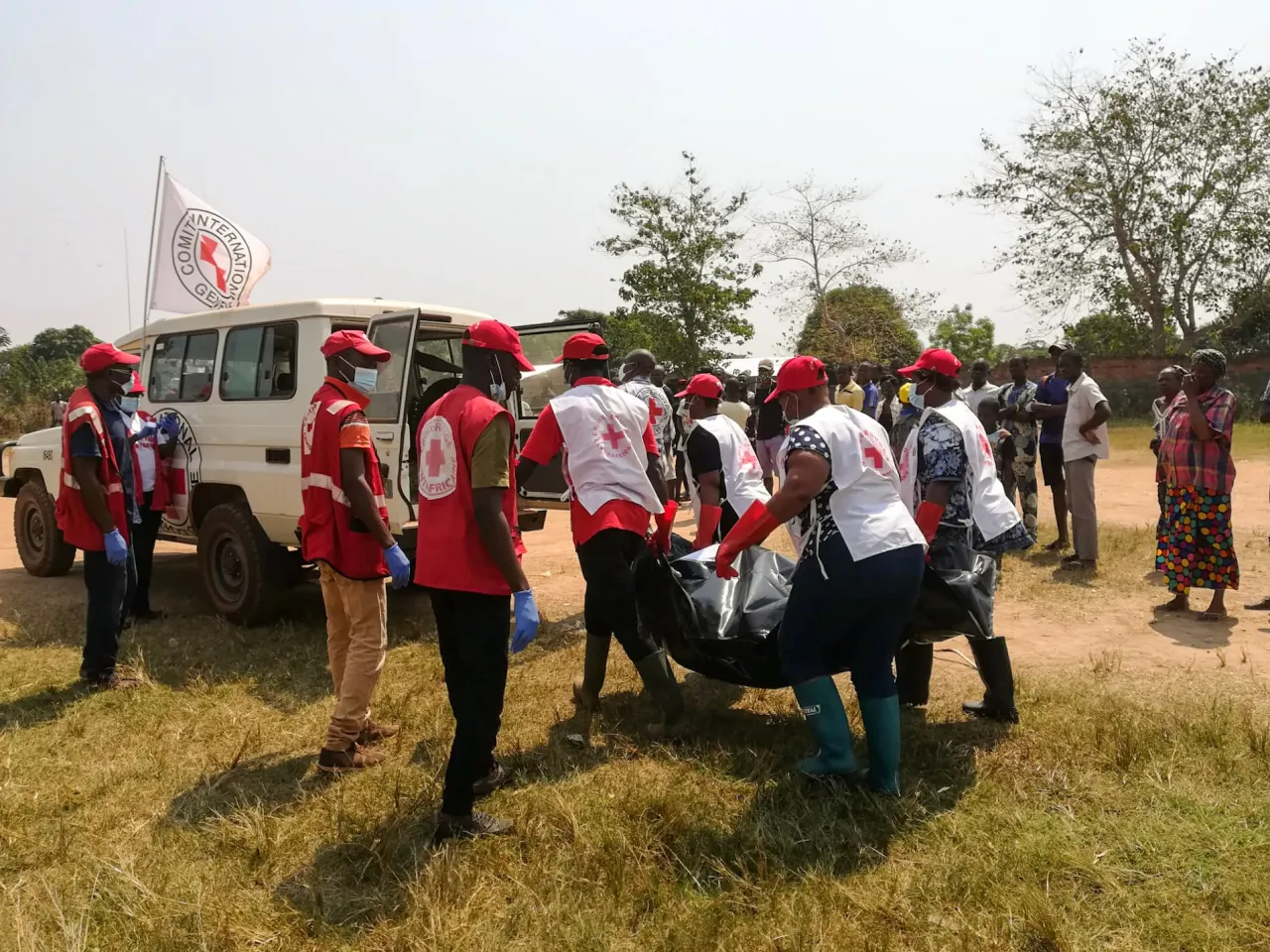
CRCA volunteers, with the support of the ICRC, help the authorities to collect the mortal remains of the victims of the clashes. Treating the remains with dignity is a humanitarian imperative.
Wounded people evacuated and dead bodies recovered
Since 15 December, 46 wounded people have been transported to hospitals in Bangui and Bambari. "The most important thing at the moment is to ensure that the most seriously wounded are taken to health centres where they can receive treatment," said Aly Ouattara, an ICRC medical coordinator.
Thanks to the equipment and the logistical support provided by the ICRC, local Red Cross volunteers have managed to recover nearly 30 bodies from where clashes took place in Bangui on 13 January.
Recovering dead bodies can have a psychological impact, but helping people to treat dead bodies with dignity is a humanitarian imperative
Bruce Biber, ICRC head of delegation in Bangui
Fears people do not have enough food
Because of the lack of security, the routes that link the Central African Republic to Cameroon have been cut off for several weeks. As a result, the prices of certain foodstuffs have risen in the markets of Bangui and the surrounding area. Humanitarian convoys have been suspended. "We are deeply worried about whether families are getting enough food. Time is not on their side. The situation is only getting worse," said Mr Biber.
Many families anticipated the fighting and fled beforehand, and are hiding in the bush waiting for the fighting to stop so that they can go back home. Around 100,000 people in the country are displaced, according to the United Nations Office for the Coordination of Humanitarian Affairs. According to the United Nations High Commissioner for Refugees, more than 84,000 have sought refuge in neighbouring countries.
Even before the election crisis, widespread crime and multiple armed groups were already making it harder to establish formal dialogue and reliable security guarantees. Since the election, the security situation has worsened; some areas have been virtually cut off from the outside world for weeks. Despite this, ICRC staff have managed to reach some areas and stay close to the people affected.
"It's hard to predict how the situation is going to evolve, but we know that people's needs are likely to increase as time passes," said Mr Biber. The ICRC is continuing to do all it can to obtain the security guarantees it needs to reach people whose access to health care and essential items has been gravely compromised by the fighting.
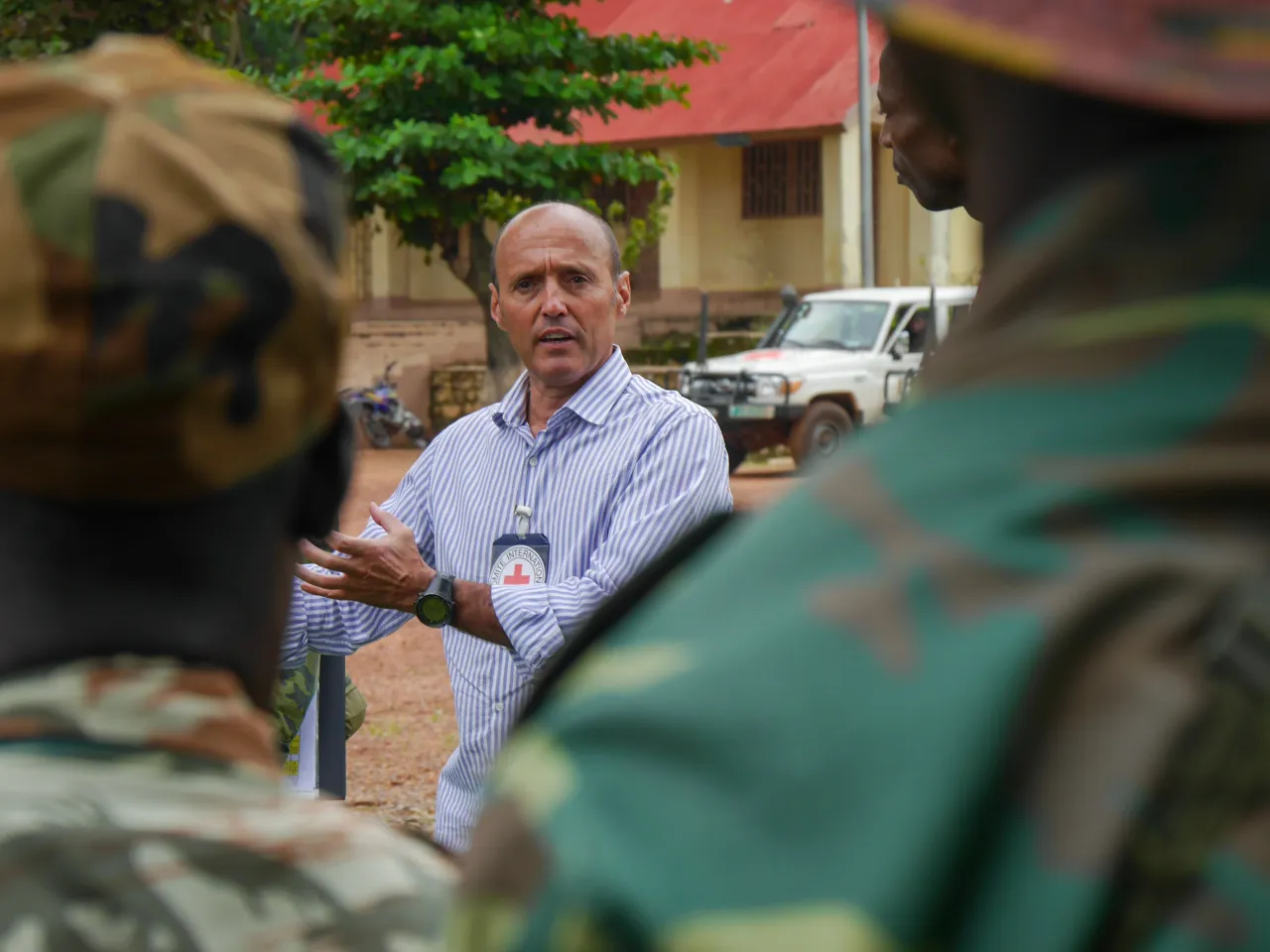
In the Central African Republic, as elsewhere in the world, the ICRC is pursuing a dialogue with arms bearers and circles of influence to disseminate the essential rules of international humanitarian law.
Operational notes (from 15 December 2020 to 15 January 2021)
• The ICRC continues to pursue dialogue with all weapon bearers and decision makers.
• An ICRC team visited individuals detained in connection with the current fighting.
• Medical supplies and equipment were provided to five hospitals and one health centre that were treating people wounded in the Bangui clashes.
• Other medical supplies were donated to hospitals in Boali, Bossembélé, Yaloké, Bouar and Kuango, located in the interior of the country.
• The ICRC is continuing to provide technical and practical support to the SODECA, the country's water utility in charge of supplying drinking water to Bangui. The organization provided hydraulic equipment to repair serious leaks.
• The ICRC trucked in drinking water for inmates in Ngaragba Prison in Bangui during the last two water cuts. Almost 5,000 displaced people gathered round the church in Dékoa also received drinking water after the organization donated fuel for the water pump.
• The ICRC provided equipment and first-aid training to 340 volunteers in 19 branches of the Central African Red Cross Society.
• Humanitarian needs assessments were carried out. Food and other essential household items will be distributed in different parts of the country in the coming weeks.
For further information, please contact:
Halimatou Amadou, ICRC Dakar, +221 78 186 46 87, hamadou@icrc.org
Taoffic Mohamed Touré, ICRC Bangui, +236 75 64 30 07, ttoure@icrc.org

